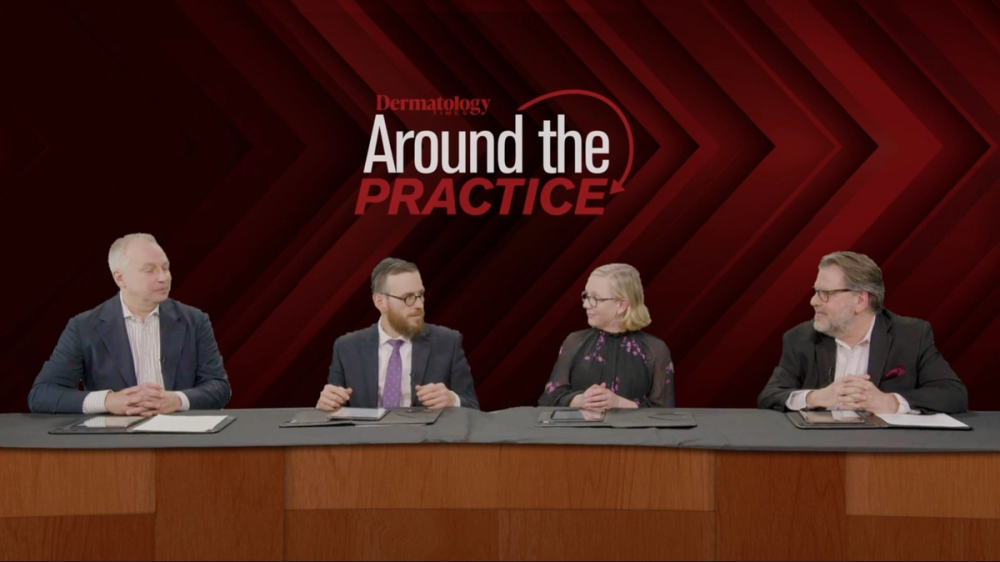- Acne
- Actinic Keratosis
- Aesthetics
- Alopecia
- Atopic Dermatitis
- Buy-and-Bill
- COVID-19
- Case-Based Roundtable
- Chronic Hand Eczema
- Drug Watch
- Eczema
- General Dermatology
- Hidradenitis Suppurativa
- Melasma
- NP and PA
- Pediatric Dermatology
- Pigmentary Disorders
- Practice Management
- Precision Medicine and Biologics
- Prurigo Nodularis
- Psoriasis
- Psoriatic Arthritis
- Rare Disease
- Rosacea
- Skin Cancer
- Vitiligo
- Wound Care
Publication
Article
Dermatology Times
Using an Investment Adviser or Doing It Yourself: Factors to Consider
Author(s):
Findings from several large studies quantify the value that professional advisers bring to dermatology practices. Learn when to hone in on their expertise and when to take matters into your own hands.
At one point in most dermatologists’ financial lives, they will ask themselves whether they should hire a professional investment adviser. For some, this will occur when they first accumulate enough to begin investing, whereas for others, this will happen after they have done it themselves for a period. As you will see, the data certainly show that for most retail investors, a professional adviser adds value to their planning. Nevertheless, does that mean it is always the right choice forany dermatologist?
The Data
The threshold question for many dermatologists will be, “Is it worth it to hire a professional adviser to manage my portfolio?” After all, no one has a greater interest than you in protecting and looking after your investments. Furthermore, paying someone else to handle this crucial area of wealth management will mean there is some fee drag to your overall investment performance (ie, it will always be more cost-efficient to do it all yourself). So why do so many physicians use professionals? The data show that it is wise to do so.
Findings from several large studies quantify the value that professional advisers bring to their clients. Two such studies, one from Vanguard and one from Morningstar, examined the financial management of clients with and without professional advice and looked at a myriad of planning factors. Findings from the Vanguard study1 estimated advisers can potentially add 3% in net returns, calculated retroactively on an annual basis. Findings from the Morningstar study2 concluded an investor could expect an annual return increase of 1.59% by using an adviser.
Beyond these studies, for most dermatologists who might consider managing their own investments, practical time issues may make this endeavor extremely difficult or financially unwise. Let’s examine each of thesetime-related issues.
Amount of Free Time
Ask almost any dermatologist what their scarcest resource is, and the answer is likely to be time. The data back this up; findings from a US Bureau of Labor Statistics report published in October 2019 reveal that the average nonfarm work week in the United States was 34.4 hours. For “private-sector production and nonsupervisory employees,” it was 33.6 hours.3 Conversely, the American Medical Association reported that fewer than 15% of physicians worked less than 40 hours per week.4
Because of this lack of time, focusing on the financial, tax, legal, risk, and insurance issues that must be understood to adequately manage a practice’s finances in general and investments in particular is a significant challenge. Add to this the consequences of managing a physician’s above-average income and net worth in less-than-ideal circumstances, and the issue becomes even more important.
We are not saying that physicians cannot or should not take an active role in their wealth planning and investing. However, compared with the average investor, physicians have much less time to do so and moreat stake.
Highest and Best Use of Time
Most physicians can research investments if they have the time. Thus, the most important question is not whether a physician can invest by themself but whether they should. In other words, would a dermatologist be better off putting their time to its highest and best use—treating patients or building a practice—and then spending a portion of their income to hire investment and wealth management expertise?
This highest-and-best-use analysis easily applies to other services, such as preparing tax returns, repairing a leaky sink, and mowing the lawn. Each physician must balance their interest in doing these and numerous other tasks with the opportunity cost of spending time on endeavors that they can pay other individuals to do for less than their own effective hourly earnings. Some dermatologists are natural do-it-yourselfers and will gravitate toward performing such tasks themselves rather than delegating, especially when the tasks are low risk and failure or suboptimal outcomes can easily be seen and remedied (the sink doesn’t stop leaking or the lawn isn’t well mowed). But consider tasks where it is more difficult to determine whether the job was done well, such as designing an investment portfolio. Basic economics may dictate that for these types of tasks, delegation makesfinancial sense.
At a high level, let’s examine a few numbers. Most (though not all) dermatologists work approximately 200 to 250 days a year, and their income ranges from $250,000 to $1 million or more annually, so they earn between $1000 to $5000 or more per day. If we estimate that the work involved in actively managing a portfolio—including researching public and private investments, assessing portfolio risk, trading and rebalancing, harvesting tax losses and gains, locating tax-efficient assets, designing withdrawal strategies, and modeling financial plans—would take1 to3 days per month, this equates to a time cost of between $12,000 and $180,000 annually.
Obviously, this range is extremely large, with physicians with the highest incomes incurring the greatest opportunity cost because they are paid so well for the highest and best use of their time. Not surprisingly, however, even for physicians with the lowest income (who still are earning much more than the average US household), their time cost almost always exceeds what they would pay a professional to handle these tasks. This highest-and-best-use concept also dictates why dermatologists should not answer their own phones, book patient appointments, do the coding and billing, or perform medical tasks that a nurse or physician’s assistant cancompetently handle.
To avoid the time cost of doing their own financial planning and investment management, most physicians elect to outsource these services. However, if you make the decision to hire an adviser, that does not mean you can completely ignore your finances and become disengaged. Ask difficult questions, check for conflicts of interest, demand transparency, and expectregular communication.
Conclusion
Despite all the concerns presented here, certain dermatologists have the acumen, discipline, and time to invest their hard-earned savings without the help of a professional. We applaud them! Nevertheless, the data show that most dermatologists will benefit from an adviser. The physician can make the best use of their own time and leverage the professional adviser’s expertise to build wealth for retirement and other long-termfinancial goals.
David B. Mandell, JD, MBA, is an attorney and author of more than a dozen books for doctors, includingWealth Planning for the Modern Physician. He is a partner in the wealth management firm OJMGroup (www.ojmgroup.com).
Andrew Taylor, CFP, is a partner and wealth adviser. They can be reached at 877-656-4362 or mandell@ojmgroup.com.
Disclosure
OJM Group, LLC (OJM) is a US Securities and Exchange Commission (SEC)-registered investment adviser with its principal place of practice in the state of Ohio. SEC registration does not constitute an endorsement of OJM by the SEC nor indicate that OJM has attained a particular level of skill or ability. OJM and its representatives are in compliance with the current notice filing and registration requirements imposed upon registered investment advisers by those states in which OJM maintains clients. OJM may only transact practice in those states in which it is registered or qualifies for an exemption or exclusion from registration requirements. For information pertaining to the registration status of OJM, please contact OJM or refer to the Investment Adviser Public Disclosure website at www.adviserinfo.sec.gov.
For additional information about OJM, including fees and services, send for our disclosure brochure as set forth on SEC Form ADV using the contact information herein. Please read the disclosure statement carefully before you invest or send money.
This article contains general information that is not suitable for everyone. The information containedherein should not be construed as personalized legal or tax advice or as a recommendation of any particular security or strategy. There is no guarantee that the views and opinions expressed in this article will be appropriate for your particular circumstances. Tax law changes frequently; accordingly, information presented herein is subject to change without notice. You should seek professional tax and legal advice before implementing any strategy discussed herein.
References
1. Vanguard: working with an adviser can add about 3% in net returns. PTM Wealth Management. January 3, 2022. Accessed May 10, 2023. https://ptmwealth.com/articles/vanguard-working-with-an-adviser-can-add-about-3-in-net-returns
2. Benz C. Ask yourself these 5 questions before you look for a financial adviser. Morningstar. April 26, 2023. Accessed May 10, 2023. https://www.morningstar.com/articles/819250/ask-yourself-these-5-questions-before-you-look-for-a-financial-adviser
3. The employment situation—October 2019. News release. US Bureau of Labor Statistics. October 2019. Accessed May 11, 2023. https://www.bls.gov/news.release/archives/empsit_11012019.pdf
4. How many hours are in the average physician workweek? American Medical Association. January 6, 2015. Accessed May 11, 2023. https://www.ama-assn.org/practice-management/physician-health/how-many-hours-are-average-physician-workweek

Newsletter
Like what you’re reading? Subscribe to Dermatology Times for weekly updates on therapies, innovations, and real-world practice tips.
































